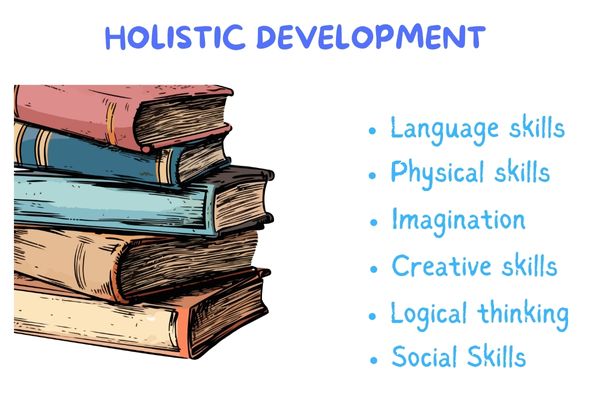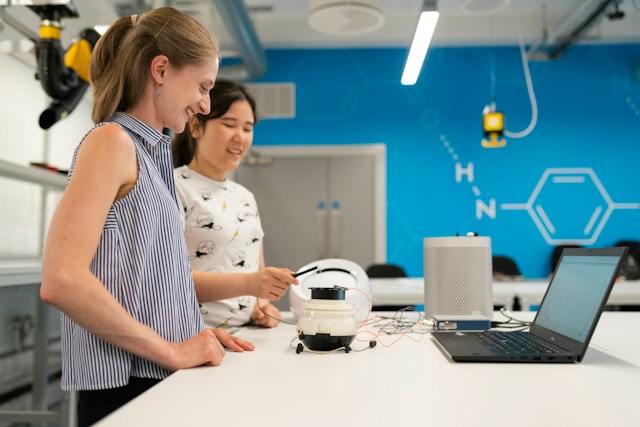In the dynamic landscape of the 21st century, the symbiotic relationship between education and skill development stands as a cornerstone for individual and societal progress. This comprehensive exploration delves into the multifaceted ways in which we learn about the role of education in skill development and in shaping and honing the skills essential for personal and professional success.
So let’s get started with some of the key points.
The Foundation: Education as the Bedrock
Education stands as the bedrock of individual development and societal progress. In the crucial stages of primary and secondary education, this bedrock is meticulously laid, shaping not only academic knowledge but also fundamental skills and values that form the basis of a well-rounded individual.
- Primary Education: Building Fundamental Skills
Primary education lays the groundwork for skill development by imparting basic literacy and numeracy skills. The early years of the educational journey form the foundation upon which advanced skills will later be built.
- Secondary Education: Fostering Critical Thinking
Secondary education introduces students to diverse subjects, fostering critical thinking and analytical skills. This phase equips individuals with the ability to approach challenges methodically and think innovatively.
Beyond Academics: Holistic Skill Development

Education, traditionally associated with academic achievements, is evolving to embrace a more holistic approach. Beyond the pursuit of knowledge, modern education recognizes the importance of nurturing a spectrum of skills essential for personal growth, professional success, and societal contribution.
- Extracurricular Activities: Nurturing Soft Skills
Participation in extracurricular activities enhances such as communication, teamwork, and leadership. These activities create a well-rounded individual capable of navigating various social and professional scenarios.
- Vocational Education: Bridging the Gap
Vocational education provides a bridge between academic learning and practical skills. Tailored programs prepare individuals for specific trades, meeting the demands of a diverse job market.
Specialized Learning: Higher Education and Beyond
In the pursuit of knowledge and professional expertise, specialized learning plays a pivotal role in shaping individuals for the challenges of the modern world. This exploration delves into the significance of specialized learning, particularly in higher education and the continuous pursuit of knowledge beyond traditional academic boundaries.
- Higher Education: Specialization and Expertise
Pursuing higher education allows individuals to delve into specialized fields, acquiring in-depth knowledge and expertise. The acquisition of advanced skills becomes paramount for succeeding in complex professional environments.
- Professional Development: Lifelong Learning
The role of education extends beyond formal academic settings. Lifelong learning facilitated through professional development courses and workshops, ensures individuals remain adaptive in an ever-evolving job market.
Skill Sets in Demand: Aligning Education with Industry Needs
In an era of rapid technological advancements and evolving industries, the alignment of education with the needs of the workforce has become imperative. This strategic alignment ensures that educational institutions produce graduates equipped with the skills and knowledge required by industries, fostering a symbiotic relationship that drives economic growth
- STEM Education: Meeting Technological Demands
Science, Technology, Engineering, and Mathematics (STEM) education addresses the growing need for skills in the technological era. Aligning education with STEM fields prepares individuals for roles at the forefront of innovation.
- Soft Skills Emphasis: The Human Touch
Industry demands a blend of technical and soft skills. Educational institutions focusing on communication, emotional intelligence, and adaptability equip graduates with the interpersonal skills sought by employers.
The Global Context: Education’s Impact on Economic Development

Education serves as a dynamic catalyst, shaping not only intellect but also the essential skills that empower individuals for success in both personal and professional spheres. This exploration delves into the profound impact of education on skill development, elucidating how learning environments contribute to the cultivation of a diverse skill set.
- Economic Growth: A Skilled Workforce’s Contribution
Education contributes significantly to a nation’s economic growth by producing a skilled and adaptable workforce. Nations investing in education witness a positive correlation with increased productivity and innovation.
- Global Competitiveness: Educational Benchmarks
A country’s global competitiveness is closely tied to the quality of its education system. Benchmarking educational standards against global criteria ensures that a nation’s workforce remains competitive on the international stage.
Challenges and Opportunities: Navigating the Educational Landscape
The educational landscape is a dynamic terrain shaped by a multitude of factors, presenting both challenges and opportunities. As educators, students, and policymakers navigate this complex environment, it becomes crucial to understand and address the challenges while leveraging the opportunities for positive transformation.
- Access to Quality Education: Addressing Disparities
Disparities in access to quality education pose a challenge to skill development. Initiatives focusing on inclusive education and reducing educational inequalities pave the way for a more skilled society.
- Adapting to Technological Advancements: The Digital Divide
As technology evolves, education must keep pace. Addressing the digital divide through technological integration in classrooms ensures that students are adept at leveraging digital tools, and enhancing their technical skills.
The Road Ahead: Education’s Role in Future Skillscapes

In the dynamic landscape of evolving industries and technological advancements, the role of education in skill development and in shaping future skillscapes is pivotal. This exploration delves into the proactive measures education must take to equip individuals with the multifaceted skills essential for success in the future workforce.
- Embracing Innovation: The Role of EduTech
Educational technology (EdTech) is poised to revolutionize the learning experience. Integrating innovative tools and platforms prepares students for a digital future, fostering creativity and adaptability.
- Entrepreneurship Education: Nurturing Innovators
The landscape of work is evolving, with entrepreneurship gaining prominence. Introducing entrepreneurship education cultivates a mindset of innovation, empowering individuals to create their own paths and contribute to economic growth.
Conclusion:
In the intricate tapestry of skill development, education emerges as the loom weaving together the threads of knowledge, practicality, and adaptability. As we navigate the future, the role of education in skill development transcends traditional boundaries, evolving to meet the demands of a rapidly changing world.
A symbiotic relationship exists, where education shapes skills, and honed skills, in turn, redefine the landscape of education. This holistic approach ensures that individuals are not merely educated but are equipped with the dynamic skill sets necessary to thrive in the complexities of the contemporary world.







